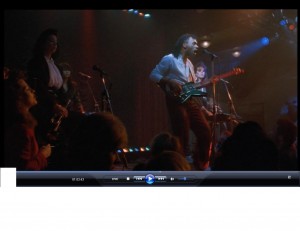This week, I was lucky to catch the first half of a concert by Finnish violinist Pekka Kuusisto and pianist/composer Olli Mustonen at London’s Wigmore Hall. I heard them play Beethoven’s Violin Sonata in A (Op. 30, #1) and Mustonen’s Sonata for Violin and Piano, which was a world premiere.
As always with PK, the playing was superb and full of energy. What he lacks in physical height, he more than makes up for in enthusiasm and pizzaz. He is an extraordinarily talented violinist, and I try not to miss opportunities to hear him play. (I have also heard him play piano, but the part was not a testing one.)
In the main, Beethoven’s violin sonatas do not impress me – our Ludwig couldn’t play the instrument nearly as well as he could play the piano, and this shows in his writing for the respective instruments. I view these sonatas as really being piano sonatas with violin commentaries. And, as so often with Beethoven, the music at some point comes to a stop, or nearly so, mid-way through the develoment section, like a clock winding down, and has to be re-started again. What underlying psychological thing is going on here, I wonder, that this happens so often in B’s music? After a while it becomes annoying, like a friend asking you the same unpleasant question every time you meet, and you end up wantIng to avoid talking with that person.
Mustonen’s Sonata was superb. The programme notes warned us that he began as a composer of “Busonian neo-classicism”. I thought this piece was not at all neo-classical, but also certainly not in the category of up-town modernist complexity. The first part comprised an ever-present walking treble line of odd intervals by the violin, sequences of uneven lengths and different intervals not quite repeated exactly, with various waves of piano arising and decaying around this. The particular odd intervals – tritones, sevenths – brought immediately to my mind some music of Australian composer Larry Sitsky, who studied with Egon Petri (1881-1962), who in turn was a student of Ferruccio Busoni (1866-1924). The emotional waves of this first part were very stark. Would I have thought of Sibelius and the forests of the North if I had not known the composer was Finnish? I don’t know.
The transition between the second and third parts was slow and beautiful, and very moving, and the effects PK produced were simply stunning. At one point, low trembling notes on the G string sounded like a breathy flute being played. And a series of repeated patterns combining trills and vibrata on different fingers of the left hand, was very impressive. Not at all clear how these effects were produced, but the independent but co-ordinated action of the left-hand fingers would have required long practice to achieve. Perhaps the effect was partly due to rapid changes of speed and pressure on the bow, also.
It was a privilege to be in the presence of such superb music played by these two virtuosos.
Here is another review of the same concert, by an anonymous blogger. Following the review, the blogger cites PK’s recording of Vivalid’s Four Seasons, as “restrained”. I wonder if he or she was actually listening! We’ve had 60 years of elegant, effete and twee recordings of The Seasons, so we know what restrained with regard to this music means. PK’s treatment is rustic and earthy and full-blooded, as if the entire ensemble had been taken outside and roughed-up in the mud of the farmyard, and the complete opposite of restrained! A simply superb interpretation, original, fresh and compelling. Your milage certainly can vary, as people say.
